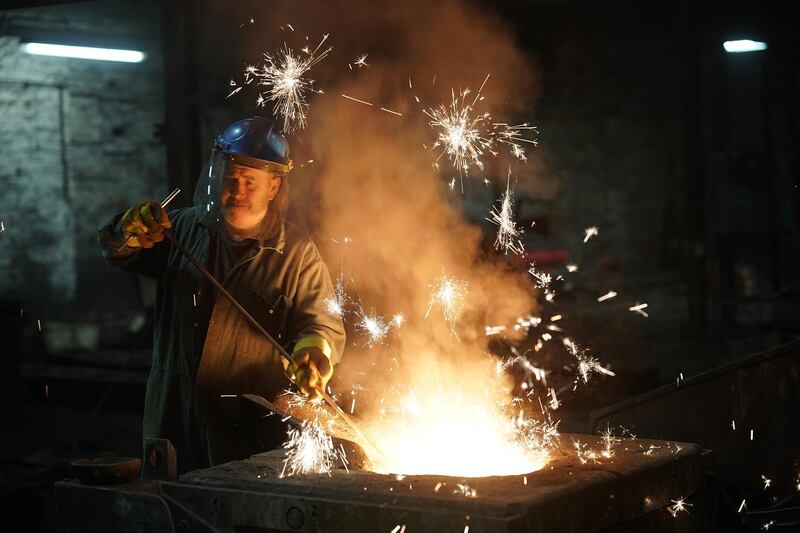British factory output unexpectedly dropped in April at the fastest pace since 2012, due to weaker demand at home and abroad, raising concern that the economy's weakness in early 2018 is persisting.
The official data published on Monday also showed the biggest trade deficit for goods since September 2016 after big falls in exports of aircraft, pharmaceuticals and machinery.
The figures do little to support the view of Bank of England Deputy Governor Dave Ramsden, who last week said data so far had suggested the economy's weak start to 2018 would prove temporary.
_______________
Read more:
What's ahead in 'most important week for world economy'
Investors turning to Paris over London as Brexit fears bite
_______________
The Bank of England said in May that it did not intend to raise interest rates until it saw proof that the economy was on a firmer footing.
Manufacturing output dropped by 1.4 per cent month-on-month in April after a 0.1 per cent decline in March - a bigger drop than any economist had forecast in a Reuters poll that pointed to growth of 0.3 per cent.
That marked the biggest fall since October 2012, the Office for National Statistics said.
The broader measure of industrial output fell 0.8 percent on the month, but was up 1.8 percent on the year - again weaker than all forecasts.
"International demand continued to slow and the domestic market remained subdued," ONS statistician Rob Kent-Smith said.






